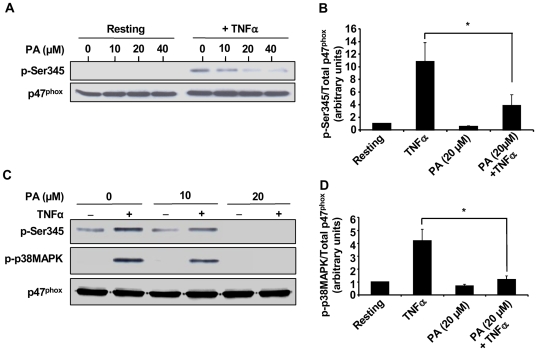Figure 2. Punicic acid inhibits TNFα-induced p47phox phosphorylation on Ser345 and p38MAPKinase phosphorylation.
(A) Neutrophils (1×107 cells/ml) were pretreated with increasing concentrations of punicic acid (10 to 40 µM) for 30 minutes, then incubated with TNFα (10 ng/ml) or without (control) for 20 minutes. Cells were then lysed and proteins from 7×105 cells were analyzed with SDS-PAGE and immunoblotting with anti-phospho-ser345 antibody (pSer345) or anti-p47phox antibody (p47phox). (B) Western blots from different experiments were scanned ; phosphorylated and total p47phox were quantified by densitometry , and the intensity of phosphorylated p47phox was corrected for the amount of p47phox. Results are expressed as mean+/−SEM (n = 3), * p<0.05 as compared to TNFα alone. (C) Neutrophils (1×107 cells/ml) were pretreated with increasing concentrations (0, 10, 20 µM) of punicic acid for 30 minutes, then incubated with or without TNFα (10 ng/ml) for 20 minutes. Cells were then lysed and proteins from 7×105 cells were analyzed with SDS-PAGE and immunoblotting with anti-phospho-ser345 antibody (pSer345), anti phospho p-38 MAPK (P-P38MAPK) and anti-p47phox antibody (p47phox). (D) Western blots from different samples treated or not with TNFα with or without 20 µM punicic acid were scanned, phosphorylated p38MAPK and total p47phox were quantified by densitometry and the intensity of phosphorylated p38-MAPK was corrected for the amount of p47phox. Data are representative of 3 independent experiments using cells from different healthy donors. Results are expressed as mean+/−SEM (n = 3). * p<0.05 as compared to TNFα alone.

